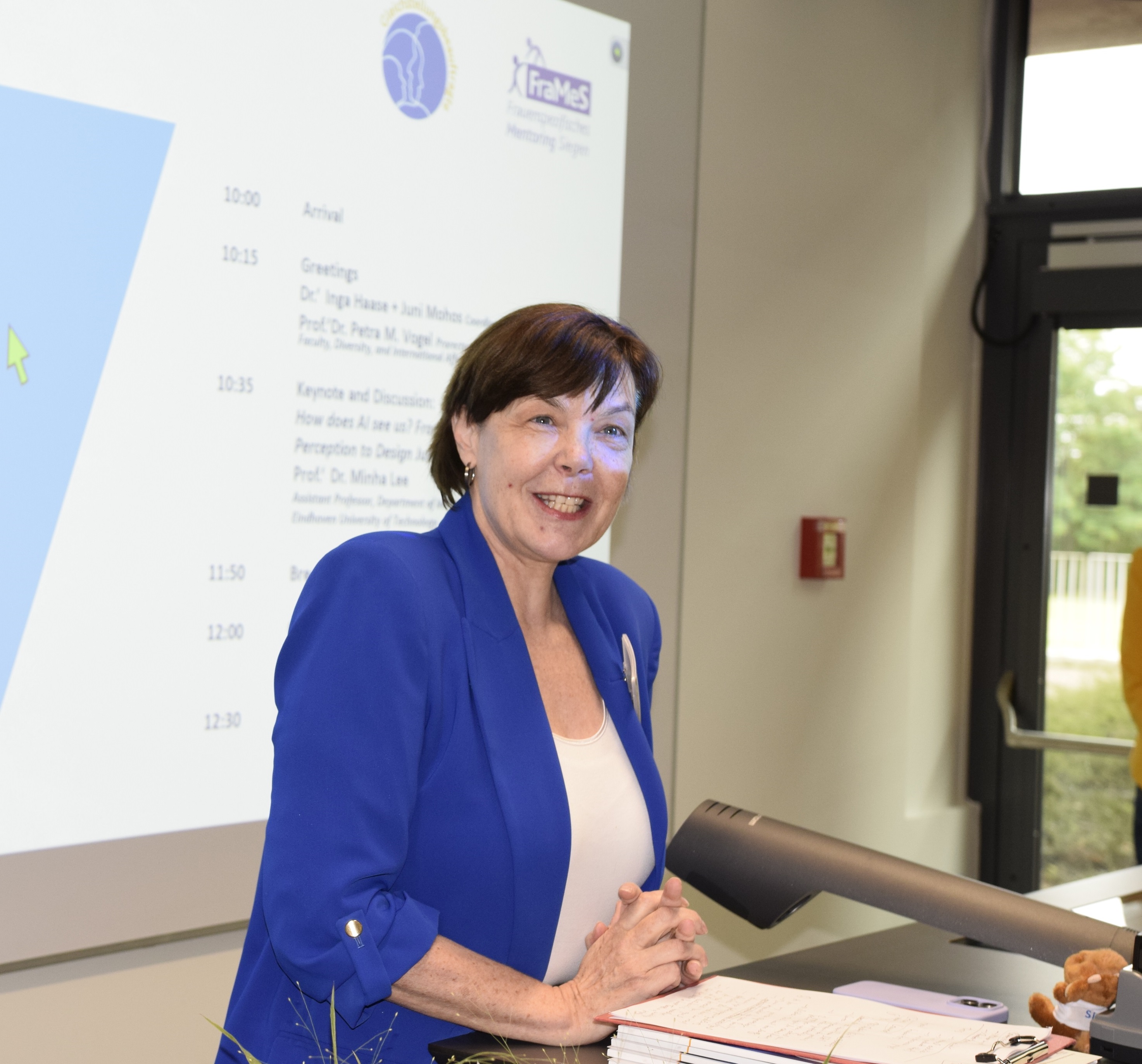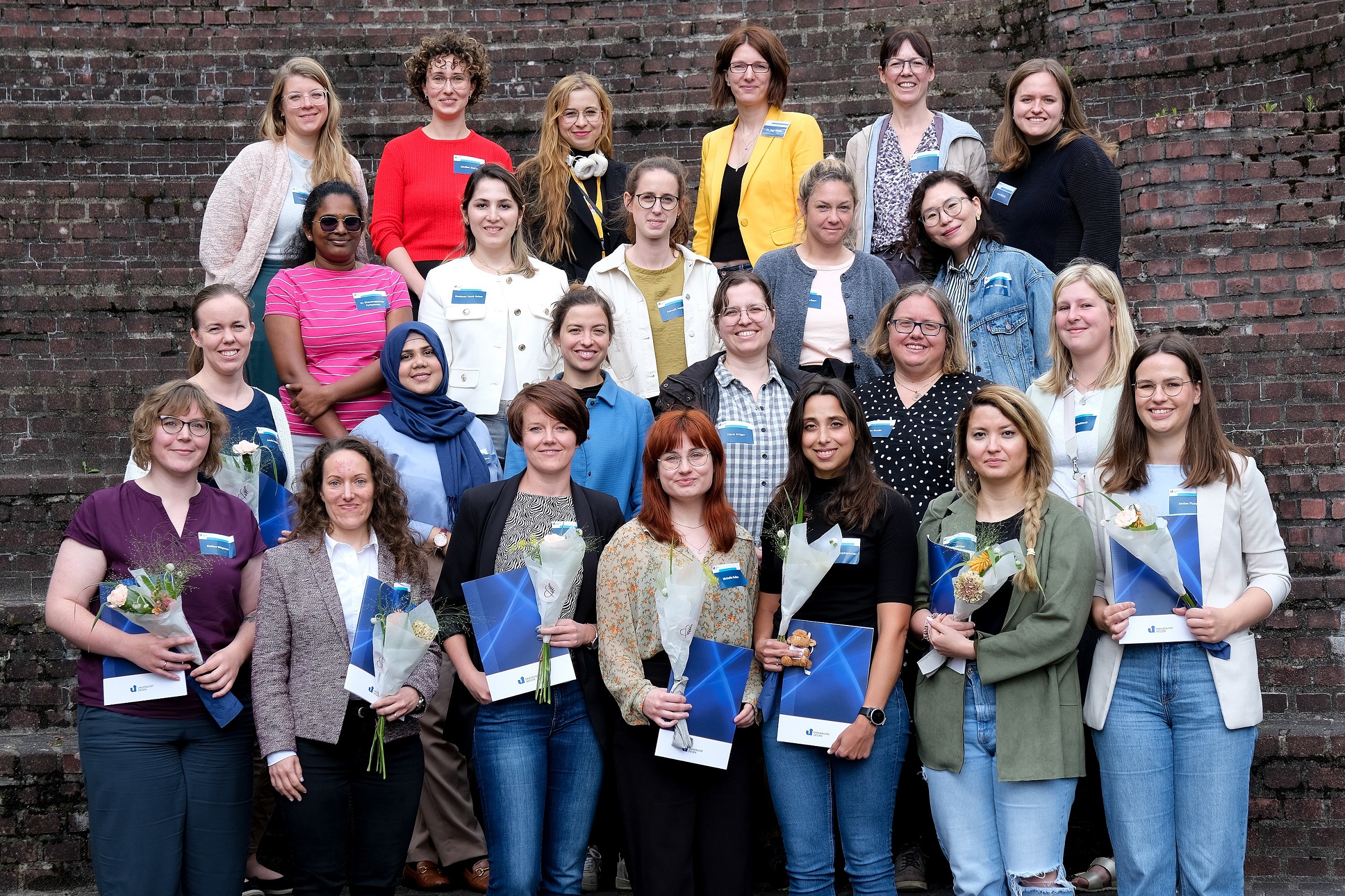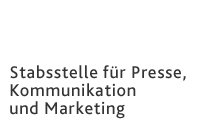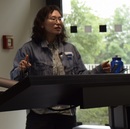Executive Department for
Press, Communication and Marketing
Adolf-Reichwein-Straße 2a Gebäude AVZ (Gebäudeteil AR-NA) 57068 Siegen
Phone: +49 (0)271/740-4915 Fax.: +49 (0)271/740-4911 E-Mail: presse@uni-siegen.de
Supporting Women in Academic Careers
Twelve young researchers have successfully completed FraMeS, a mentoring program intended specially for women. The University of Siegen first started offering this tailored career training service in 2010, and interest remains strong as ever: a new round has opened with seventeen participants.
They are doctoral researchers, post-docs, and associate professors. The first rung on the academic ladder has already been cleared and one thing is clear: the climb to the top will be long and hard. The “glass ceiling” is not only still there, but needs to be shattered again, and again, and again. The University of Siegen created FraMeS (“Frauenspezifische Mentoring Siegen”) as way to support highly qualified female academics from its various faculties.
The program includes workshops and training. At its heart, however, is the mentoring tandem between the participants (mentees) and their mentors — of any gender — from relevant academic fields. The networking of women within the university, as well as in academic work as a whole, is a key element in FraMeS.
 The twelve graduates of the program received words of congratulation from Dr. Inga Haase and Judi Mohos, coordinators of the FraMeS program, as well as Prorector Dr. Petra Vogel. Drawing on her own experience, the prorector advised the young academics to figure out early what they wanted to achieve, and not just “wait for it to happen.” In her words: “This is why a program like FraMeS is so vital and important.”
The twelve graduates of the program received words of congratulation from Dr. Inga Haase and Judi Mohos, coordinators of the FraMeS program, as well as Prorector Dr. Petra Vogel. Drawing on her own experience, the prorector advised the young academics to figure out early what they wanted to achieve, and not just “wait for it to happen.” In her words: “This is why a program like FraMeS is so vital and important.”
Dr. Minha Lee, assistant professor in the Faculty for Industrial Design at the Technical University of Eindhoven, then offered a fascinating lecture on the question of “How does AI see us?” She researches moral conflicts and emotions in relation to technology. This includes explorations into whether moral emotions such as empathy or gratitude play a role in interactions with robots and chatbots. Her findings on how technology assesses humans and how data collection might contribute to the perpetuation of stereotypes helped incite a lively discussion after her presentation. But her personal background as a researcher also provided grist for questions. Back in 2019, the TU Eindhoven announced that, for a limited period, it would only be hiring women for research positions. This led others, but also Minha Lee herself, to question whether her hiring as an assistant professor was related solely to those circumstances, i.e., to pure happenstance. “From my personal point of view, I think the university was also lucky to land me,” Minha Lee says with a smile.
A 13th class of FraMeS graduates were celebrated. Certificates were awarded to: Amelie Vogler, Bettina Sophia Wagener, Chantal Klinkhammer, Doreen Muhl, Janina Florack, Julia Müller, Michelle Buller, Dr. Anna Karger-Kroll, Dr. Kathrin Holten, and Dr. Theresa Specht.

The new class comprises: Dr. Lia Durán Mogollón, Dr. Duygu Karatas, Dr. Marie Neubert, Dr. Shanmugapriya Periyannan, Anne Hildebrand, Diana Grüger, Mirja Beck, Lina Vandré, Madlen Kneile, Lina Gebhardt, Marta Maria Röder, Moonum Zehra, Setareh Orangpour, Hannah Jestädt, Inga Schuppener, Nastaran Farah Baksh, Annika Wisser, and Eva Bordin.


